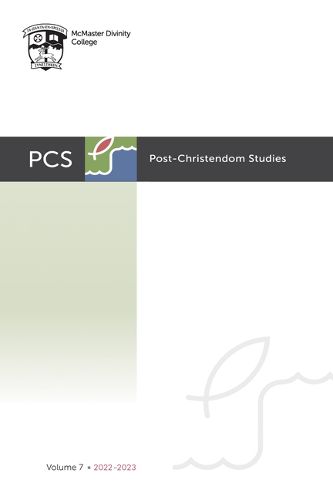Readings Newsletter
Become a Readings Member to make your shopping experience even easier.
Sign in or sign up for free!
You’re not far away from qualifying for FREE standard shipping within Australia
You’ve qualified for FREE standard shipping within Australia
The cart is loading…






This title is printed to order. This book may have been self-published. If so, we cannot guarantee the quality of the content. In the main most books will have gone through the editing process however some may not. We therefore suggest that you be aware of this before ordering this book. If in doubt check either the author or publisher’s details as we are unable to accept any returns unless they are faulty. Please contact us if you have any questions.
Post-Christendom Studies publishes research on the nature of Christian identity and mission in the contexts of post-Christendom. Post-Christendom refers to places, both now and in the past, where Christianity was once a significant cultural presence, though not necessarily the dominant religion. Sometimes "Christendom" refers to the official link between church and state. The term "post-Christendom" is often associated with the rise of secularization, religious pluralism, and multiculturalism in western countries over the past sixty years. Our use of the term is broader than that however. Egypt for example can be considered a post-Christendom context. It was once a leading center of Christianity. "Christendom" moreover does not necessarily mean official public and dominant religion. For example, under Saddam Hussein, Christianity was probably a minority religion, but, for the most part, Christians were left alone. After America deposed Saddam, Christians began to flee because they became a persecuted minority. In that sense, post-Saddam Iraq is an experience of post-Christendom--it is a shift from a cultural context in which Christians have more or less freedom to exercise their faith to one where they are persecuted and/or marginalized for doing so.
$9.00 standard shipping within Australia
FREE standard shipping within Australia for orders over $100.00
Express & International shipping calculated at checkout
This title is printed to order. This book may have been self-published. If so, we cannot guarantee the quality of the content. In the main most books will have gone through the editing process however some may not. We therefore suggest that you be aware of this before ordering this book. If in doubt check either the author or publisher’s details as we are unable to accept any returns unless they are faulty. Please contact us if you have any questions.
Post-Christendom Studies publishes research on the nature of Christian identity and mission in the contexts of post-Christendom. Post-Christendom refers to places, both now and in the past, where Christianity was once a significant cultural presence, though not necessarily the dominant religion. Sometimes "Christendom" refers to the official link between church and state. The term "post-Christendom" is often associated with the rise of secularization, religious pluralism, and multiculturalism in western countries over the past sixty years. Our use of the term is broader than that however. Egypt for example can be considered a post-Christendom context. It was once a leading center of Christianity. "Christendom" moreover does not necessarily mean official public and dominant religion. For example, under Saddam Hussein, Christianity was probably a minority religion, but, for the most part, Christians were left alone. After America deposed Saddam, Christians began to flee because they became a persecuted minority. In that sense, post-Saddam Iraq is an experience of post-Christendom--it is a shift from a cultural context in which Christians have more or less freedom to exercise their faith to one where they are persecuted and/or marginalized for doing so.